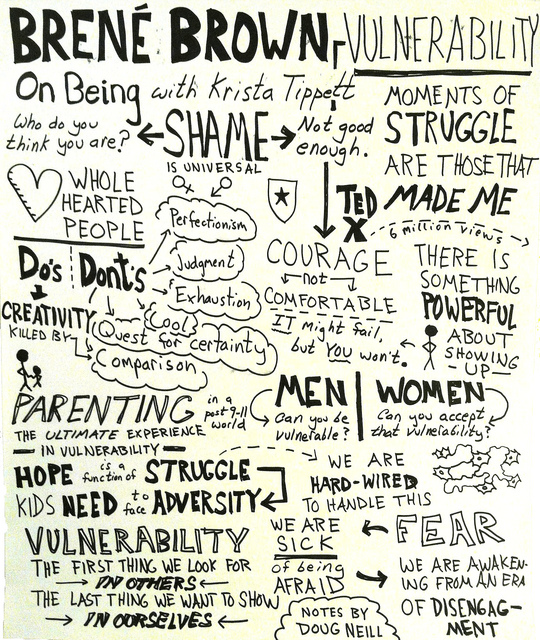By: Alexandra Watts
For this assignment, I decided to read Brené Brown’s “The Gift of Imperfections: Let Go of Who You Think You’re Supposed to Be and Embrace Who You Are.”
As mentioned in my presentation, I chose this book because I am a “recovering perfectionist.” I still work my hardest, but before I became a college student, I was very intense about always being 100% on every single thing I did. Failure to me was anything less than excellence. It wasn’t healthy, it wasn’t fun, and thankfully, it’s not me anymore.
When I first started reading Brown’s book, I noticed mentions of PTO meetings and more “adult” concepts. I felt like this book might be beyond me and my experiences. However, I was pleasantly surprised with Brown and this book.
Here is a video of Brown speaking on Oprah about imperfection:
Even in this short clip, Brown’s attitude is apparent.
Brown is friendly and accessible and this comes through in the book. Her style was not too academic, and thought I was initially afraid of how her examples might isolate me, Brown said a lot of things that resonated with me.
One of the biggest things Brown touched on was that all of us have some level of perfection we are trying to achieve. Even though I am not as intense as I am was, I still have moments where I want to be “perfect” in situations. Brown’s book is not about transcending perfection, but about learning to deal with imperfections to make the best out of situations.
She believes that perfectionism is a type of thinking, and she gives examples of how to remedy this. Her view on perfectionism as a type of thinking is backed up by an article on Psychology Today that states perfectionists are prone to “self-destruct” because perfection is not obtainable.
Brown and the article touch on how perfectionism is like a “shield” protecting the person from what they think might hurt them. Imperfection is a great thing, and it can lead to other great things.
The titular gifts of imperfection are courage, compassion and connection according to Brown. We must have the courage to admit that we are not perfect, compassion to understand that others are not perfect and the connection to others who might be going through expectations of perfection.
In 10 guideposts, Brown goes over how to deal with imperfection. I like how she gives examples in each of these sections, too.

Photo Credit: Doug Neil Sketchnotes on Vulnerability (via Flickr)
Brown is inspiring, but not cheesy. She is real without being too crude.
Being honest with yourself is the best thing we can be, and it can lead to great things.
While this is not a traditional leadership book, it deals with a character trait. If a leader wants everything to be perfect, this can be harmful to a team they are leading to a goal. Perfection cannot be accepted. However, if we admit that we strive for perfection, we this is a step as we are being honest with ourself.
I think that working hard is still important. However, doing your best does not mean that the end product has to be flawless. When one does their best, they are learning and growing, not reaching a level of perfection.
I like this book, and I would read it again. I also would like to read some of the other works by this author. Brown’s book is excellent — I would say it’s perfect, but after reading this piece, you learn that nothing is.

